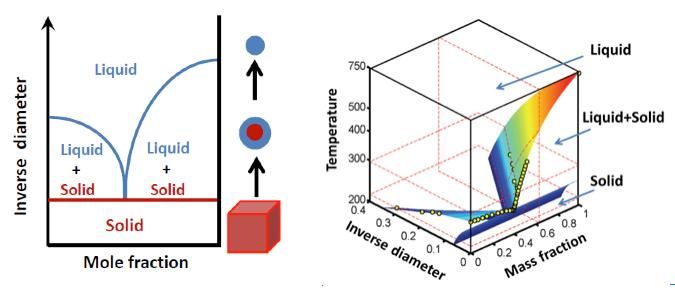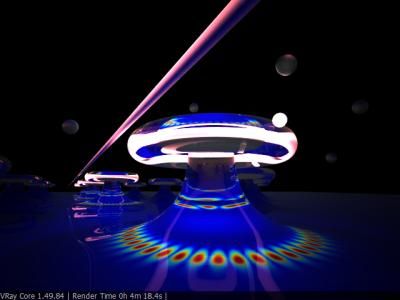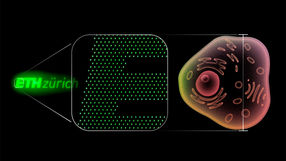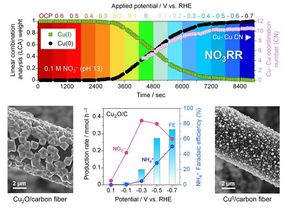Solid or liquid - the particle size matters
Max Planck researchers elucidate how the phase state of aerosol nanoparticles depends on their size
Advertisement
Whether tiny particles in the air, so-called aerosol nanoparticles, are solid or liquid, is of great importance to atmospheric and climate scientists. The phase state determines if and how fast such particles grow into cloud condensation nuclei on which water vapor can condense to form cloud droplets and precipitation. Until recently, however, experimental observations of the solid-liquid phase transitions and humidity-dependent growth of atmospheric aerosol nanoparticles could not be explained by theoretical calculations and model predictions.

The particle size of aerosol nanoparticles is as important for the phase state as the chemical composition and temperture. The 2D (left) and 3D (right) phase diagram illustrates this correlation.
Hang Su, MPI for Chemistry
Scientists at the Max Planck Institute for Chemistry could now resolve the riddle. "The particle size is more important than we previously thought, "says Yafang Cheng, group leader at the institute in Mainz. "For example, salt particles can become liquid not only by increasing temperature or humidity, but also by reducing the particle size," says the lead author of a publication in Nature Communications.
The researchers around Yafang Cheng and Hang Su analyzed high precision measurement data on the hygroscopic growth of sodium chloride and ammonium sulfate nanoparticles exposed to varying relative humidity. From these growth curves, the researchers calculated the interfacial energies and critical diameters for the solid-liquid phase transitions of the salt nanoparticles. According to similar analyses, the researchers expect that organic aerosol particles commonly occuring in large quantities in the atmosphere are always liquid at room temperature when their diameter is below approximately 20 nanometers.
"Based on our results the particle size should be considered as an additional dimension in the phase diagram of aerosol nanoparticles," says Cheng´s colleague Hang Su. “Our findings are also relevant for other research areas where nanoparticles play a role, including the biomedical and materials sciences.” For example, they may help to determine and control the solubility and concentration of therapeutic or reactive agents in in synthetic nanoparticles for medical or technical applications.



























































